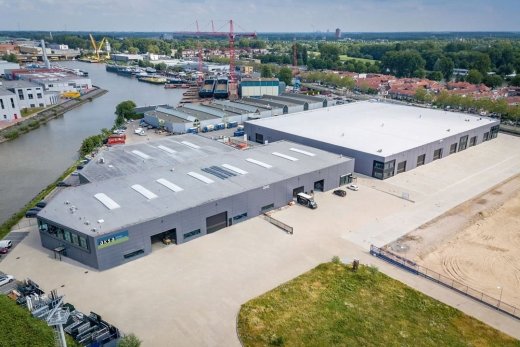Wastewater treatment facilities form the backbone of urban infrastructure. They keep our waterways clean, prevent health crises, and support industrial operations across the globe. However, one overlooked threat to these critical facilities is power disruption. Even a few minutes of downtime can result in environmental damage, regulatory fines, and system-wide failures.
Backup generators are a key safeguard against such risks. In this article, we’ll explore how power resilience plays a crucial role in wastewater treatment and how facilities can make the right decisions to stay operational in the face of uncertainty.
Why Power Reliability Is Critical in Wastewater Treatment
Wastewater treatment is a continuous process that relies on steady electrical power at every stage – from influent pumping and screening to aeration, chemical treatment, and final discharge. If power is interrupted during any of these stages, the treatment process may halt, partially treated or untreated sewage may be discharged, and sensitive equipment may be damaged.
Facilities often use Supervisory Control and Data Acquisition (SCADA) systems to monitor and automate operations. These systems are also power-dependent. Even a temporary loss of power can lead to data loss, miscommunication between systems, and safety hazards for on-site personnel.
Power outages can be caused by grid instability, weather events, maintenance faults, or accidental interference. That’s why most wastewater treatment plants are required -by national and EU standards – to have reliable standby power in place.
Key Power Challenges Faced by Water Utilities
Unplanned Outages
Unplanned outages caused by grid failures or weather extremes pose the most direct threat. Facilities without proper backup power risk full system shutdowns, overflow events, or irreversible damage to biological treatment stages.
Voltage Fluctuations and Surges
Even when the grid is functional, voltage irregularities can cause equipment stress, trip safety mechanisms, and lead to premature failure of motors, pumps, and control units.
Time-Sensitive Compliance
Water authorities often require facilities to operate within narrow time frames when discharging treated water. Losing power during such windows can result in legal violations or environmental harm.
Rising Operational Complexity
Modern facilities rely on smart systems, remote diagnostics, and integrated energy flows. These improvements, while efficient, are more sensitive to power quality issues and require robust backup infrastructure.
Backup Generator Roles in Critical Wastewater Operations
Backup generators aren’t just about powering the lights. In wastewater treatment, they ensure:
- Pump Operation: Pumps must continue moving influent and effluent through each stage, even during a blackout.
- Aeration and Blowers: Power to blowers must be uninterrupted to maintain oxygen levels for microbial digestion.
- Chemical Feed Systems: Dosing must remain consistent, especially in tertiary treatment and disinfection stages.
- Monitoring & Control Systems: SCADA and alarms must stay online to prevent human and system errors.
- Heating and Ventilation: In colder climates, heating systems protect biological processes from temperature shock.
Generators can be configured for full-facility backup or critical-load prioritization, depending on the plant size and compliance risk.
Compliance Risks and Environmental Consequences of Power Failure
Across the EU and within the Netherlands, wastewater facilities are held to strict environmental standards under local water boards and directives such as the EU Urban Wastewater Treatment Directive.
Power interruptions can cause:
- Spill events leading to river or coastal contamination
- Permit breaches resulting in regulatory fines or suspension
- Non-compliance reports affecting future tenders and funding eligibility
Some regulations now require documented evidence of backup power capacity and response plans, making generators not just a practical necessity but also a legal one.
Backup Generator Specifications Ideal for Water Infrastructure
Not every generator is suited to wastewater operations. When selecting backup systems, utilities should prioritize:
- Stage V Compliance: For reduced NOx and particulate emissions in urban zones
- Low Noise Enclosures: To comply with residential noise limits
- Automatic Transfer Switches (ATS): For instant power switching when outages occur
- Parallel Capability: For plants with multiple load zones or expandable facilities
- IP-rated Enclosures: Weatherproofing and corrosion resistance in high-humidity environments
- Remote Monitoring: So teams can monitor fuel use, faults, and run-time remotely
Hybrid and HVO-compatible units are increasingly popular as municipalities seek carbon reduction in public infrastructure.
Emerging Trends: Sustainability and Smart Monitoring in Backup Systems
As the wastewater industry evolves, so does its approach to energy resilience:
Sustainable Fuel Options
Hydrotreated Vegetable Oil (HVO) offers a cleaner alternative to traditional diesel with lower lifecycle CO2 emissions. Generators that support HVO contribute to net-zero goals.
Battery + Generator Hybrid Systems
Some facilities are experimenting with hybrid setups that use battery banks for short outages and generators for prolonged use, reducing fuel consumption and noise.
Predictive Maintenance & IoT Integration
Modern generators include sensors and smart control panels that feed data into central dashboards. This enables predictive maintenance, load balancing, and performance optimization.
Powering the Future: Why Planning Ahead Matters
Backup generators are no longer a luxury or just a checkbox item for audits. They are an essential layer of defense in the wastewater sector’s resilience strategy. As climate risks, urban demands, and environmental expectations rise, so does the need for reliable backup systems tailored to each facility’s unique needs.
Whether you’re upgrading legacy infrastructure or building a new plant, early integration of power resilience into your design will deliver long-term protection and compliance.
Need Help Choosing the Right Solution?
Power Genset NL works with municipalities, engineering firms, and contractors to deliver backup power systems designed specifically for critical infrastructure like wastewater treatment.
From EU Stage V-certified generators and remote monitoring tools to turnkey installation and aftersales support, we help you maintain operational continuity under all conditions.
Contact us today at sales@powergenset.nl or explore our generator solutions to learn how we can support your facility’s long-term resilience.

